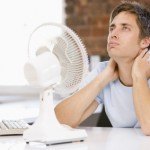These days we all seem to be leading more stressful lives. Indeed in a recent blog we pointed out some of the signs and symptoms of stress so please drop round and find out a bit more here https://patienttalk.org/?p=2355.
So we thought it would be great opportunity to do a post which looks at a few natural ways of relaxing without having to resort to formal treatments.
It would be great if you could use the comments boxes below to add any suggestions you might have on how best to relax.
- Herbal tea. My wife and I favour camomile tea. Not only does it promote restful sleep but some recent research suggests it may help with muscle spasms. That being said the U.S. National Institutes of Health recommend that women who are pregnant or breast feeding should avoid it.
- Yoga. This ancient South Asian exercise system is a great way of both keeping the body trim and relaxed. In fact it is used as a treatment for a number of medical conditions including multiple sclerosis. You can find out more here https://patienttalk.org/?p=571
- Massage. By soothing your muscles through different pressure points it’s a great way to wind down. You can lean how to do it yourself http://www.learn-massage-therapy-online.com/learn-massage.html and save a fortune.
- Acupuncture. It seems that many people who use acupuncture to treat different ailments also experience a great sense of relaxation during the session. Advocates suggest you can develop a great sense of wellbeing. Have you tried it? Does it work?
- Breathing. Yes, really deep breathing over a few minutes on your own can really help. It’s not an old wives tale.
- Hot water bottle. Try lying on your back with a hot water bottle under your neck. I’ve tried it and it really works for me.
- Laughing. Yes really. Why not watch your favourite comedy program at the end of a stressful day to help you unwind.
Obviously there are loads of ideas and as we said it would be great if you could share a few of your ideas with our readers.
Thanks very much in advance.




